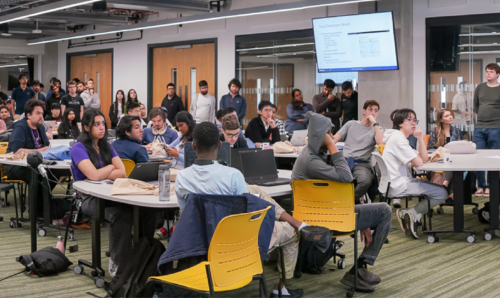My Policy Fellowship at the Parliamentary Office of Science and Technology
EEE in the real world 19th October 2021
Rodosthenis Charalampous, of the Department of Electrical and Electronic Engineering, recently completed a four-month Fellowship at the Parliamentary Office of Science and Technology (POST), where he worked on the production of a report (‘POSTnote’) on the topic of energy sector digitalisation.
POSTnotes are the flagship report of POST and are designed to inform parliamentarians on timely matters. Here he tells more about his experiences…

Being an industrial PhD student at the Centre for Innovative Nuclear Decommissioning (CINDe) of the National Nuclear Laboratory (NNL), I became aware of the regulatory frameworks that govern the UK nuclear industry.
In July 2020 I participated in one of the regional speaking competitions organised by the Nuclear Institute’s Young Generation Network (YGN), and delivered a presentation on technological innovations that could augment the capabilities of present nuclear decommissioning efforts across the UK.
Following my presentation, I was asked by one of the judges whether I had considered relevant policy that could have an impact on the adoption of the technologies I had proposed. This impelled me to further explore the area of science and technology policy in order to improve my understanding of the interplay between technological innovation, industry, and policymaking.
About POST
I came across the UK Research and Innovation (UKRI) policy internships, a scheme that allows candidates from the UKRI research councils to work for three to four months at a host organisation, and work on timely policy topics. I chose the Parliamentary Office of Science and Technology as a host due to its focus on public policy issues related to science and technology.
POST is a bicameral body within the UK Parliament that produces peer-reviewed briefings, designed to make scientific research accessible to the UK Parliament. During my time there, I worked on the production of a ‘POSTnote’, the flagship report of POST, on the topic of energy sector digitalisation.
The main objectives of this policy briefing report were to present an overview of the key digital technologies and their applications to the energy sector, analyse the broader challenges and benefits of energy sector digitalisation, and present recent policy developments in this area.
Apart from researching and analysing relevant literature, the production of a POSTnote involves conducting interviews with stakeholders from government, academia, industry, and the third sector.
During my first two months at POST, I had the opportunity to conduct approximately 30 interviews with leading experts on energy sector digitalisation, which was one of the most interesting aspects of the Fellowship. The latter half was spent on drafting the report, which was published following internal and external peer reviews.
Broadening my skill set
Overall, the POST Fellowship has been one of the most insightful experiences I have had so far during my research programme. It gave me the opportunity to understand the implications of technological innovation in a wider context and allowed me to apply my research skills in an area beyond my PhD.
Working on a policy briefing report enabled me to learn how to communicate in a policy context, which differs from the technical writing that is typical to engineering research. I would highly recommend the policy internships scheme to anyone who is interested in broadening their research skill set and is interested in developing their science communication and policy writing skills.





Leave a Reply